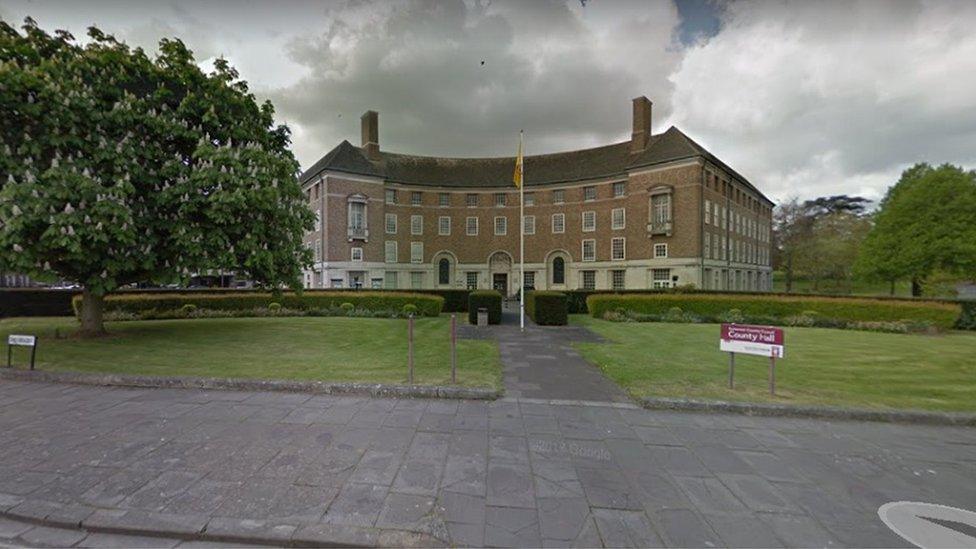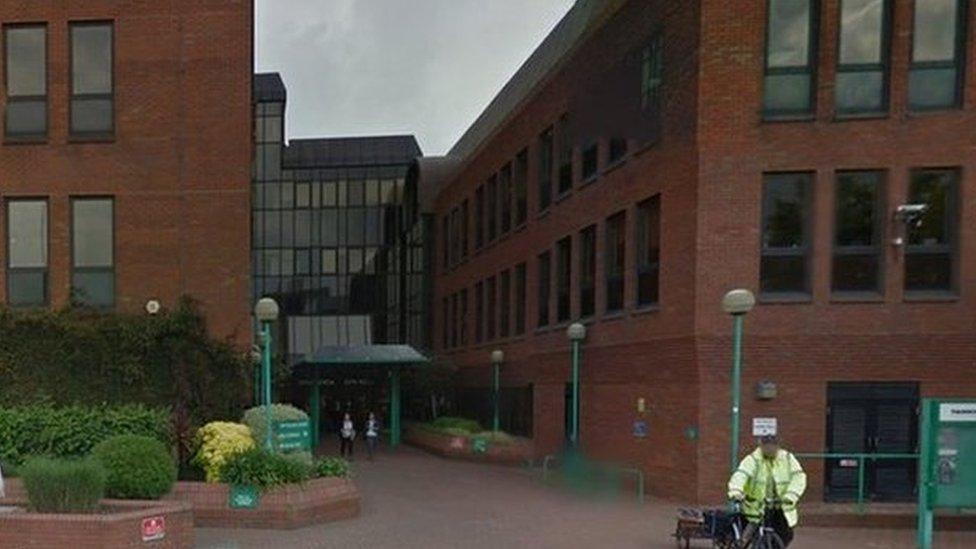Somerset County Council's whistleblowing policy to be reviewed
- Published

The issue was debated at a council meeting on Friday afternoon
A local authority is to review its whistleblowing policy after more complaints were apparently being raised than being reported.
Seven internal complaints over three years had been raised at Somerset County Council including four associated with "significant" fraud.
But WhistleblowersUK said it had dealt with more than seven in the same time and "not all were to do with fraud".
The not-for-profit organisation will now help create a new policy framework.
Identities protected
Julian Gale, the council's manager for partnerships and governors, said each case was being dealt with on a case-by-case basis.
He said the current policy was agreed in 2016 but "there's no suggestion at this stage that the policy is not compliant."
"The focus of the policy is to ensure that anyone working for the council feels comfortable and protected in raising a complaint against an employee within the council and without the need to 'blow the whistle' outside of the council."
Georgina Halford-Hall, from WhistleblowersUK, would not elaborate on the precise numbers or details of the cases, "to protect the identities of those involved".
But she added she had dealt with more than seven cases from Somerset in the past three years, and not all of them were to do with fraud."
Mr Gale accepted Ms Halford-Hall's offer of help, admitting that the actual number of complaints may be higher than official estimates.
He said: "The number of complaints known to our monitoring officers are at a low level.
"This amounts to seven over the last three years, and includes four significant fraud cases.
"Further work needs to be done to establish that seven complaints in three years is a true figure across the council, and to ensure that adequate records are being kept of complaints to enable lessons to be learnt."

What is whistleblowing?
Whistleblowing is an employee raising a concern about an alleged wrongdoing, including suspected misconduct, illegal acts or a failure to act.
It must be in the public interest to reveal the information rather than for private gain
The act must "tend to show past, present or likely future wrongdoing" - including criminal offences, failure to comply with legal obligations, miscarriages of justice, endangering people's health, damaging the environment or covering up any form of wrongdoing.

- Published11 October 2018

- Published10 October 2018

- Published16 August 2018
